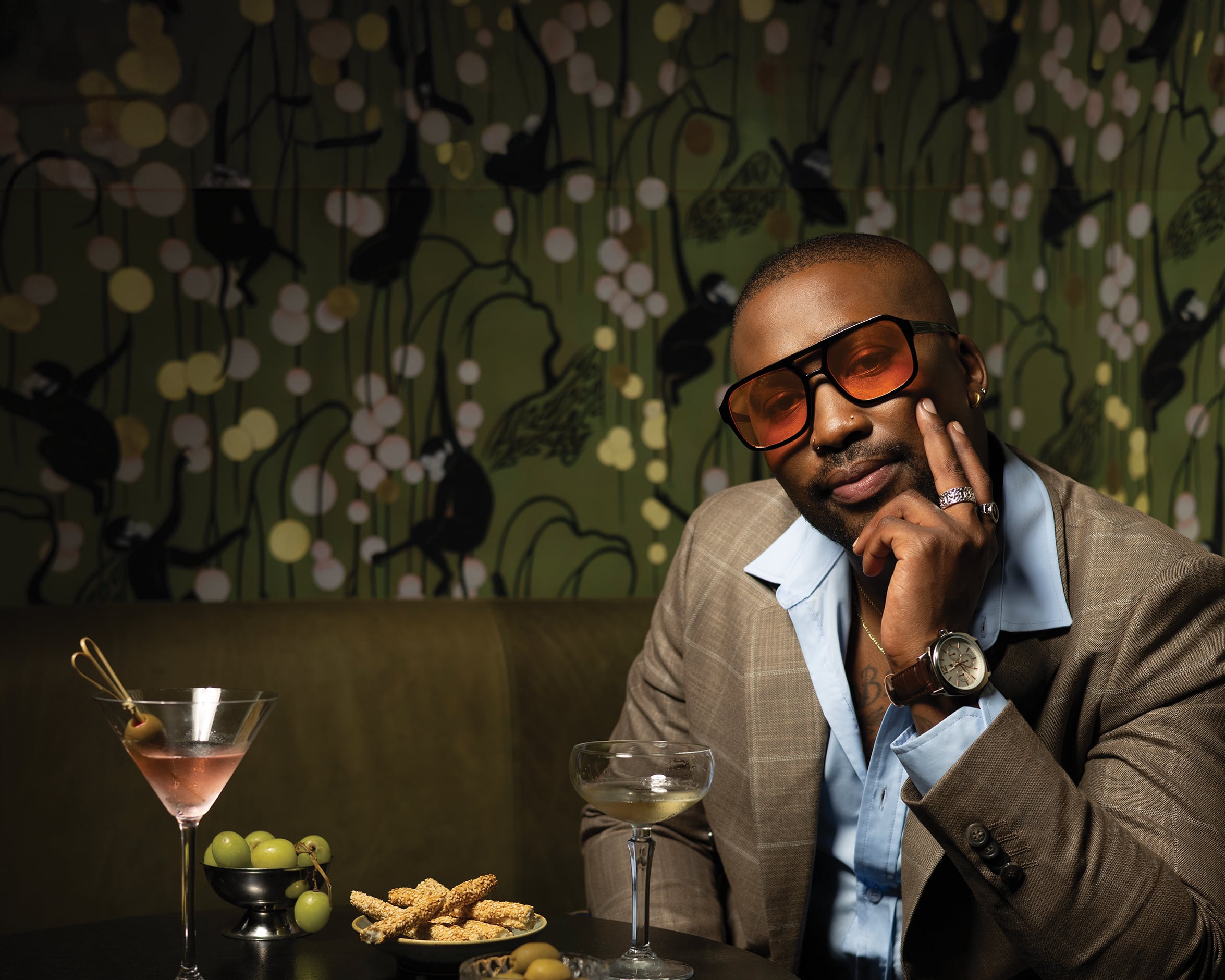He isn’t just a chef. He’s a storyteller, a firestarter and, above all else, a culture disruptor. If you haven’t tasted what he’s cooking, you’re already late.
Under the muted lighting of The Alex, a Cape Town cocktail bar that whispers in smoky undertones and clinks of crystal glasses, we had the pleasure of meeting and shooting with this month’s cover star, culinary maverick Katlego Mlambo. He didn’t need to make an entrance. He simply was the moment.
The space, all polished brass and velvet seating, set the perfect stage for a chef who is rewriting the rules on fine dining with a distinct South African flavour. Being on set with him was less about posing and more about capturing the essence of a man who cooks like he lives – boldly, proudly and with swagger.
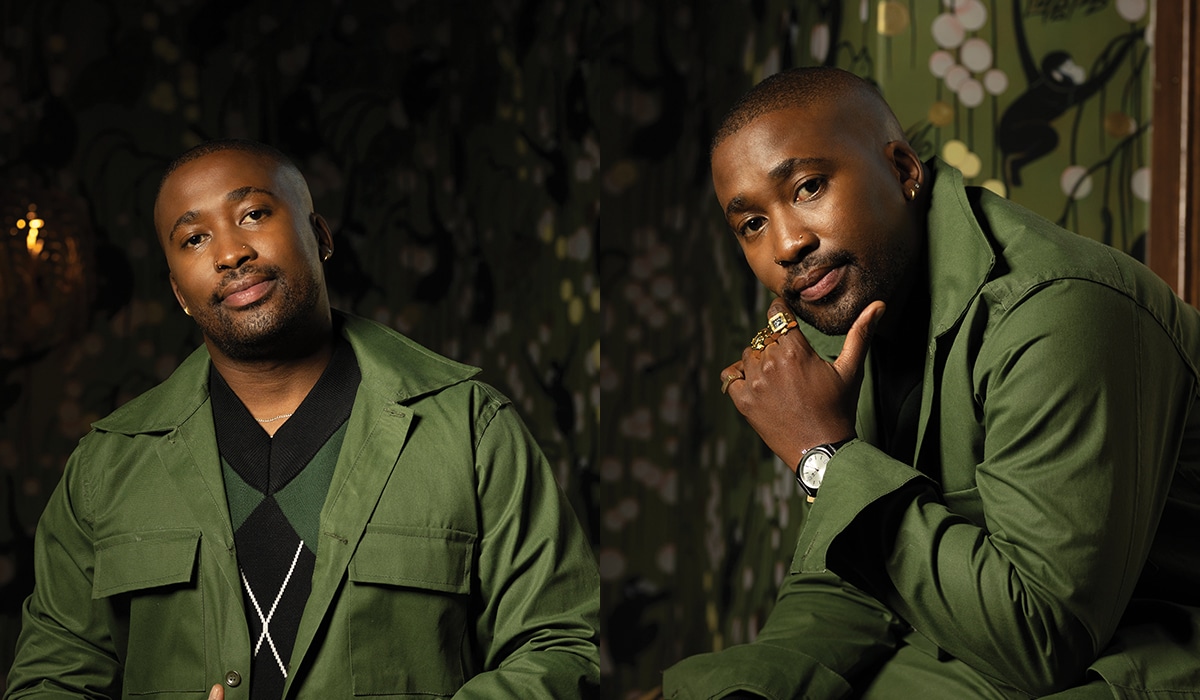
Back to his roots
He might have been born and raised on the streets of Eldorado Park, Joburg, but it is the heat of Cape Town’s top kitchens that forged him. After studying at the Silwood School of Cookery, his journey has taken him from plating dishes at The Roadhouse to redefining the norm with his kasi-inspired fine dining.
Having trained under Cape culinary maestros like Luke Dale-Roberts, PJ Vadas and Scot Kirton of La Colombe, to making the kitchen at The Marabi Club in Johannesburg his kingdom, Katlego’s food is dressed-up nostalgia on a plate — think mogodu with a twist, and chakalaka cooked nice and slow, making every bite packed with soul.
The Kudu Restaurant in London came calling in 2022, looking for his unique magic. After a stint across the pond, he did what all the real ones do, and that’s come home.
Right now he is focused on his path as a culinary entrepreneur, working with a mix of private clients and brands, and collaborating with fellow ‘chefpreneurs’. He’s also keeping an open mind about future opportunities, which may include establishing an eatery of his own.
But before the restaurants, the awards and the cameras were the women who raised him — his grandmother, mom and aunts. Women who showed him that food wasn’t just about feeding people but about caring for them.
“Seeing my granny operating in the kitchen with no recipes and just cooking on instinct, and at the end of the day, it coming out absolutely delicious… I think those are the purest of my food memories,” he says.
“I also think that food is the one thing we all have in common. When you’re happy you eat, when you’re sad you eat, when you mourn you eat, when you celebrate you eat. So I think when I used to see them doing their thing in the kitchen, it planted the seed for me. I thought to myself, ‘I could do that!’ And these were the building blocks of me becoming a chef and being who I am today.”
In every kitchen he’s worked in, Katlego has brought a piece of home with him in his culinary ethos: “Calm over chaos, fairness over fear, and heart over ego.”
Above all, he’s learnt to value himself — not just as a chef but as someone who only accepts the best from himself. “I want to be the best. Average, for me, doesn’t work. I need to be a rock star! So, if I’m doing things, I’m doing them at 110 per cent. I want to be the best and I’m not going to apologise for wanting to be the best.”
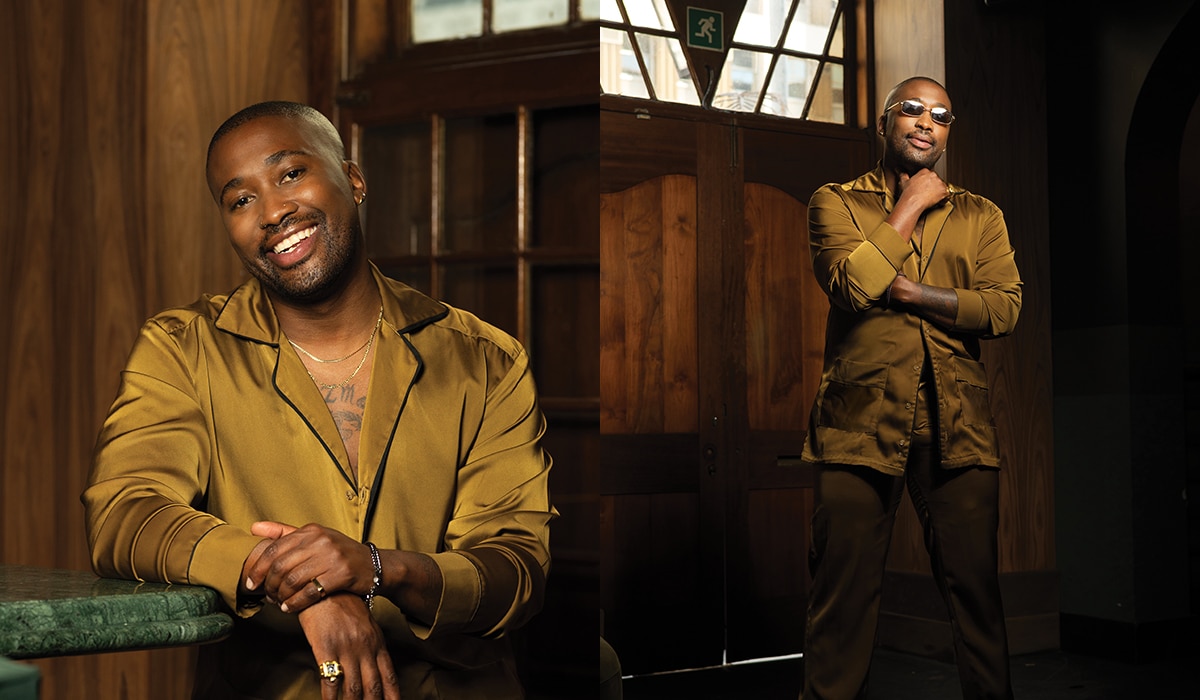
Loud and proud
Ask him what recipe captures everything he stands for and his answer is instant: chakalaka! “I’m all about shouting to the world that I’m so proudly South African. I think South Africa’s culture and food diversity is incomparable to anything else in the world. Chakalaka is something that I see my granny make with just instinct. These things are not taught in culinary school. You have to listen to it and taste it along the way until it makes sense.
“Everyone knows chakalaka — if not, are you even South African?! So I think that’s the one thing that I like to carry. Just let the world know that our food is spicy, it’s naughty, it’s aggressive, but mostly importantly, South African food is delicious.”
He wants people to stop treating our food as simply a curiosity or a gimmick, but instead recognise it for the deep complexity it has. “Chakalaka’s just the base, but there’s so much more to give. And know that when South African cuisine lands globally, people are going to hear it loud and clear.”
He feels it’s also very important for him to be an ambassador. “I always say, everyone has this stigma about South African food. We have these massive portions and it’s always about braai meat. But there’s so much more to us than just braai. So for me it’s about embracing being South African and embracing our flavours.”
@chef_kat UMUNTU NGUMUNTU, NGABANTU 🧡 @Silwood School of Cookery #bestchef #ubuntu #passion #cooktok #lethimcook #awards #blackexcellence ♬ Horns In The Sun (feat. Mo-T, Brenden Praise & Mörda) [Thakzin Remix] [The Extended Mix] – DJ Kent
A journey of sacrifice
No road to greatness is easy, of course. It’s all about the late nights, the missed celebrations with loved ones and the pressure to never falter. Some difficulties are less obvious. Coming up in fine dining as a young black chef meant walking a path that not many took note of. While his friends had easy access to funding and the opportunity to take risks in their budding careers, for Katlego every opportunity had to count.
“I’m so thankful that my lecturers saw something I didn’t see myself. They’re the ones that kept me on the straight and narrow. And it was very difficult — being in college, where you’re surrounded by all these rich kids. I used to compare myself. But comparison is the thief of happiness. I remember the one day I was crying and I said to my gran, “I’m done. I don’t want to do this anymore.” She was the one who said that if it was easy, everyone would be doing it.”
He adds: ‘And I think I am who I am today because a lot of people did not give up on me. The sacrifice and the rewards have been tremendous and I’m not looking back.”
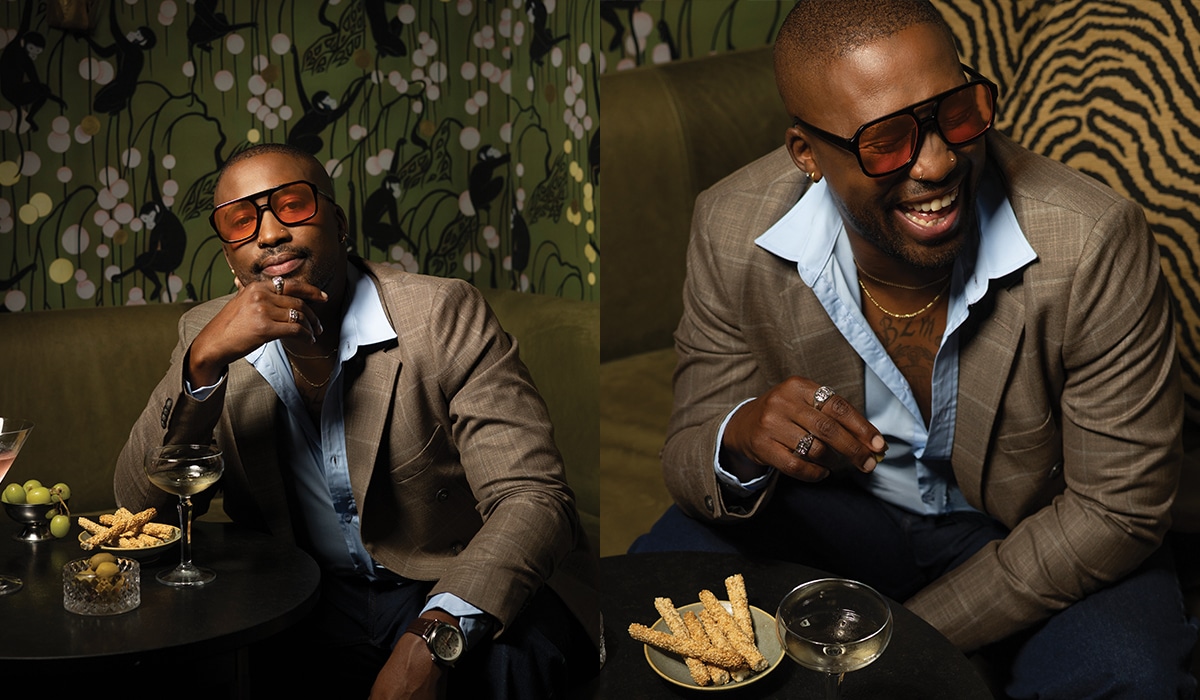
Identity speaks
His sense of self didn’t just shape his journey and his culinary approach, it also shaped the way he stands tall and owns the space he has taken up in the industry. Katlego reveals that being a black chef in South Africa comes with its constraints, especially when you’re not cooking within the limits or frame of European fine dining.
“There are so many talented black chefs in our country;’ he says, “but they don’t get the recognition they deserve because they are not cooking what’s considered ‘refined’ or ‘elevated’. For the heritage South Africa has, for the culture that we have, I really do feel that black chefs and restaurant owners are not being recognised.”
As an example: “Think of Sphamandla, who’s amazing and cooks in a container somewhere in the ‘hood and makes an amazing meal, and you try to compare him to a restaurant that has all the bells and whistles… You can’t do that. You’re not comparing apples with apples.”
Katlego says it’s more about context and access. “Some people can go to a fine-dining restaurant once or twice a year, but for your everyday folk, that’s not sustainable.”
His own experiences and the struggles he’s had along his journey have taught him just how uneven the playing field is. “My parents also sacrificed so much for me to go to culinary school and be able to have the same opportunities as others. That’s not something I take lightly. And I think it’s very important to just be aware of it.”
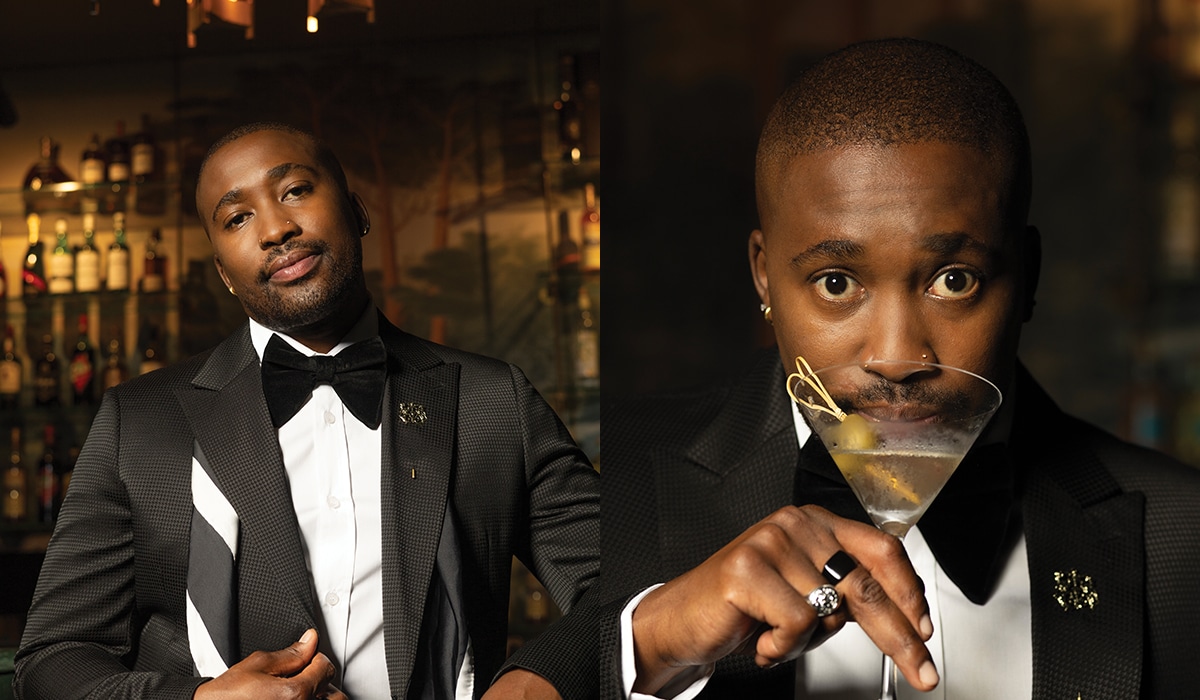
To younger Katlego
Now, with hindsight and a bucket load of experience, he thinks back to what his younger self might need to hear — the one who was just starting out with hope in his eyes and chasing his dreams.
“It’s not what you see on TV!” he says with a chuckle. “Honestly speaking, I think what I would say to myself is to keep it simple and everything will fall into place. But you’ve got to want it and no one can want it more than you do.”
With so many accomplishments over the last 17 years, and with his feet firmly planted in the industry, he’s already thinking about the legacy he’d like to leave behind.
“When I’m gone, I want people to say, ‘You know what? He tried: He pauses and smiles. “And if I can inspire even just one young person in the industry to work as hard as I have and leave their mark on the industry as I have, then I’ve made it.”
By: Rughsaar Bibi Ismail
Photography by: Zhann Solomons
Text courtesy of MAN magazine
Also read: Rihanna: The icon of our time



